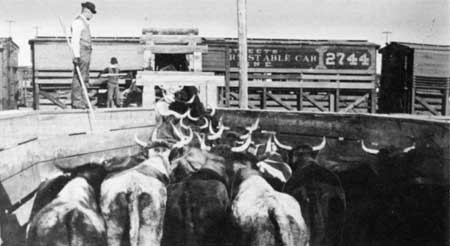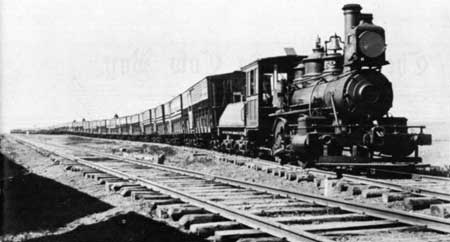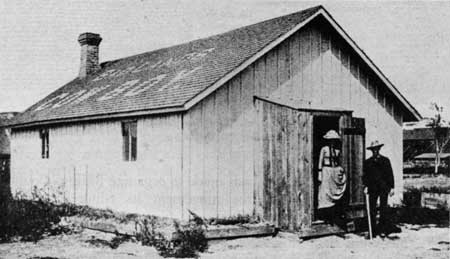|
Theodore Roosevelt and the Dakota Badlands |
 |

Cattle in Dakota Territory loading into Northern
Pacific Railroad car at Eland Yards, near Dickinson, N. Dak.
Courtesy State Historical Society, North Dakota.
Little Missouri and Medora
Optimistic prospects for the Badlands were reflected in the growth of the hamlet of Little Missouri. The Dickinson Press described this village in September 1883 as follows:
This town, situated in Pyramid Park on the banks of the Little Missouri river, and surrounded by the Bad Lands with their fine scenery is, at the present time one of the most prosperous and rapidly growing towns along the line of the Northern Pacific. New buildings of every description are going up as fast as a large force of carpenters can do the work and an air of business and enterprise is apparent that would do honor to an older town. . . . Game of all kinds is plentiful in the surrounding country and it is becoming quite a resort for pleasure seekers and those who love the chase. The country is well adapted to stock raising and Little Missouri will soon become the center of a large and growing stock interest. Marquis de Mores and C. E. Haupt are the head of Northern Pacific Refrigerator Car Company and have built a large slaughter house with capacity for slaughtering and preparing two hundred beeves daily for the market. . . .

Livestock train, Northern Pacific Railroad, Eland
Yards, near Dickinson, N. Dak. Courtesy State Historical
Society, North Dakota.
Only a few months previously the Marquis de Mores had established the town of Medora opposite Little Missouri on the east bank of the river, which he named for his wife. Medora, which became the center of the Marquis' operations, was soon to overshadow in importance the older town.
Early in 1884, in the new settlement of Medora, Arthur Packard, a graduate of the University of Michigan, started a newspaper called The Bad Lands Cow Boy.

Office of "The Bad Lands Cow Boy," Medora.
Courtesy Houghton-Mifflin Co.

|

|
|
Last Modified: Sat, Jan 17 2004 10:00:00 am PDT |


